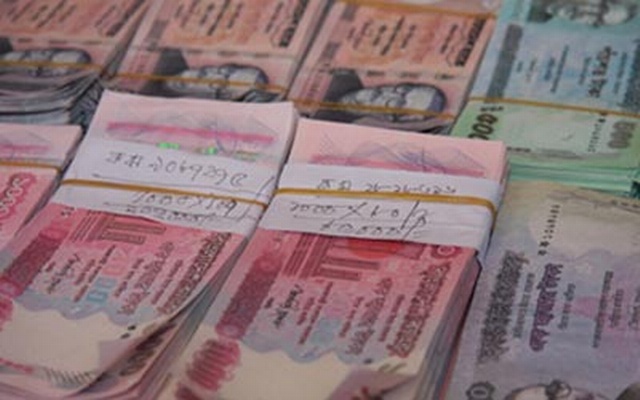
Published :
Updated :

Deposit growth in banks has continued to fall in recent months, intensifying liquidity crunch amid persisting economic slowdown, said officials and bankers.
They attributed the declining trend in deposit inflows to multiple factors, including higher inflation, sluggish economic activity, and a growing trust deficit among depositors following widespread loan irregularities in some banks during the previous government regime.
This leads to an increase in the volume of currency outside the banking channel, ultimately prompting the lenders to increasingly rely on the central bank's available repo facility to meet their fund obligations, according to them.
According to the latest data of Bangladesh Bank (BB), total deposit in the banking system stood at Tk 18.32 trillion by end of May, marking a 7.77 per cent year-on-year growth from Tk 17.01 trillion in May 2024.
Even in December 2023, the deposit growth was recorded at 11.04 per cent, but since then, the growth rate has been falling consistently-dropping to 8.51 per cent in March and 8.21 per cent in April this year.
Requesting anonymity, a BB official said the deposit growth keeps declining in recent months, a cause of concern for the banking industry. "The most alarming part is that the deposit outflows from the banking system continue to rise, which is exacerbating the liquidity crisis," the official said.
According to the BB data, the volume of currency outside the banking system climbed to Tk 2.94 trillion in May 2025, up from Tk 2.77 trillion in April.
The official noted that long-term time deposits have shown a modest increase, but short-term demand deposits continue to fall, largely due to the rate-related gains.
The BB official said the data indicate that depositor confidence in the banking sector remains weak and the inflow of fresh deposits continues to be low-posing an ongoing challenge for the industry.
Talking to the FE, Managing Director and Chief Executive Officer of Mutual Trust Bank (MTB) Syed Mahbubur Rahman said the employment opportunities in the formal sector keep shrinking amid prevailing economic downturn, while real wage growth drops in comparison with the inflation rate.
"So, it becomes difficult for many to save money after covering their regular expenses. It is one of the reasons behind the deposit trends in banks," said the seasoned banker. In fact, it put more pressure on overall liquidity management, as commercial banks have put their money into government securities amid existing sagging investment regime, he said.
A treasury head of a private commercial bank, who wishes to remain anonymous, said a number of banks have been facing difficulties in managing fund. As a result, the dependency of the lenders on the BB's repo-backed borrowing has been mounting. "If we look at the recent data on bank borrowing through the central bank's repo facility, we'll see a massive rise," the senior banker added.
The official data showed that the country's scheduled banks borrowed Tk 1.45 trillion from the banking regulator under the repo facility in June 2025. The borrowing figures stood at Tk 1.33 trillion in May, Tk 940 billion in April, and Tk 838 billion in March, according to the data.
jubairfe1980@gmail.com


 For all latest news, follow The Financial Express Google News channel.
For all latest news, follow The Financial Express Google News channel.